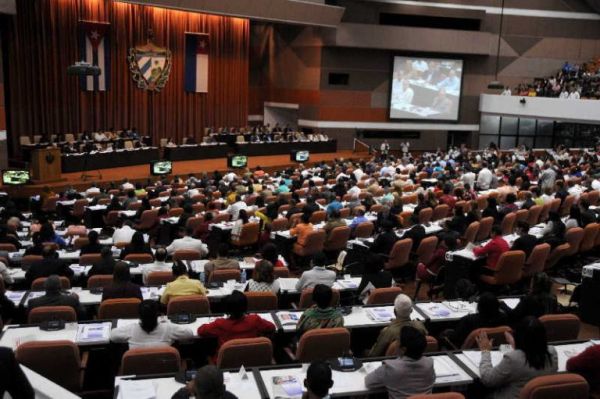
The meeting is being attended by Army General Raul castro, first secretary of the Communist Party of Cuba (PCC) and Miguel Díaz-Canel Bermúdez, president of the Councils of State and Ministers
The new Magna Carta of the Republic of Cuba, endorsed last February 24, hac been proclaimed today during an extraordinary session of the National Assembly of People’s Power (ANPP).
The event is taking place at Havana’s Convention Center, 150 years after the approval of the Constitution of Guáimaro by the first Government of the Republic in Arms.
The deputies of Parliament, who played an important role in the elaboration of the text and unanimously approved it on December 22, 2018, will play a leading role in this transcendental moment in the history of the nation.
In accordance with the ideas of Miguel Díaz-Canel, president of the Councils of State and Ministers, the ANPP should prepare to carry out from now on a broad legislative exercise, and implement in the shortest possible time all the laws that reinforce the Magna Carta.
On the Law of Laws, the president has expressed in various scenarios that guarantees the rights of each and every one of the nation’s citizens, enhances the dignity of the people and is anti-imperialist.
At the closing of the Second Ordinary Session of the Ninth Legislature of the ANPP he said that the text reaffirms the socialist course of the
Revolution and allows the work of the State, the Government, organizations and all the people to be channeled into the continuous improvement of society.
The new Magna Carta, submitted to a broad and participatory popular consultation -from August 13 to November 15, 2018- has among its great achievements the continuity of conquests of the Revolution such as free education and health, recognition of effective citizenship and broadening the range of rights, among many others.
Endorsed with the positive vote of 6,816,169 voters, the Constitution has 229 articles, 11 titles, two special provisions, 13 transitional provisions and two final provisions.
 Escambray ENGLISH EDITION
Escambray ENGLISH EDITION





Escambray reserves the right to publish comments.